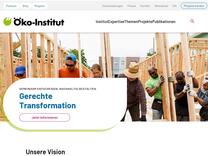The EU policy framework for energy communities | oeko.de https://www.oeko.de/publikation/the-eu-policy-framework-for-energy-communities/
European Union (EU) legislation introduces two definitions of energy communities—“renewable energy communities” (Renewable Energy Directive) and “citizen energy communities” (Electricity Directive). Energy communities‘ importance for the energy transition has been mentioned in several other recent EU policy actions. This chapter provides an overview of the EU policy framework for energy communities by comparing the two legal definitions. It further discusses other relevant processes and gives brief insights into energy communities‘ development in several EU Member States. The analysis shows that countries differ considerably regarding the current deployment of energy communities and the legislative, social, and economic factors that influence their development.
policy framework for energy communities 08.07.2022 Energie & Klimaschutz Bücher

